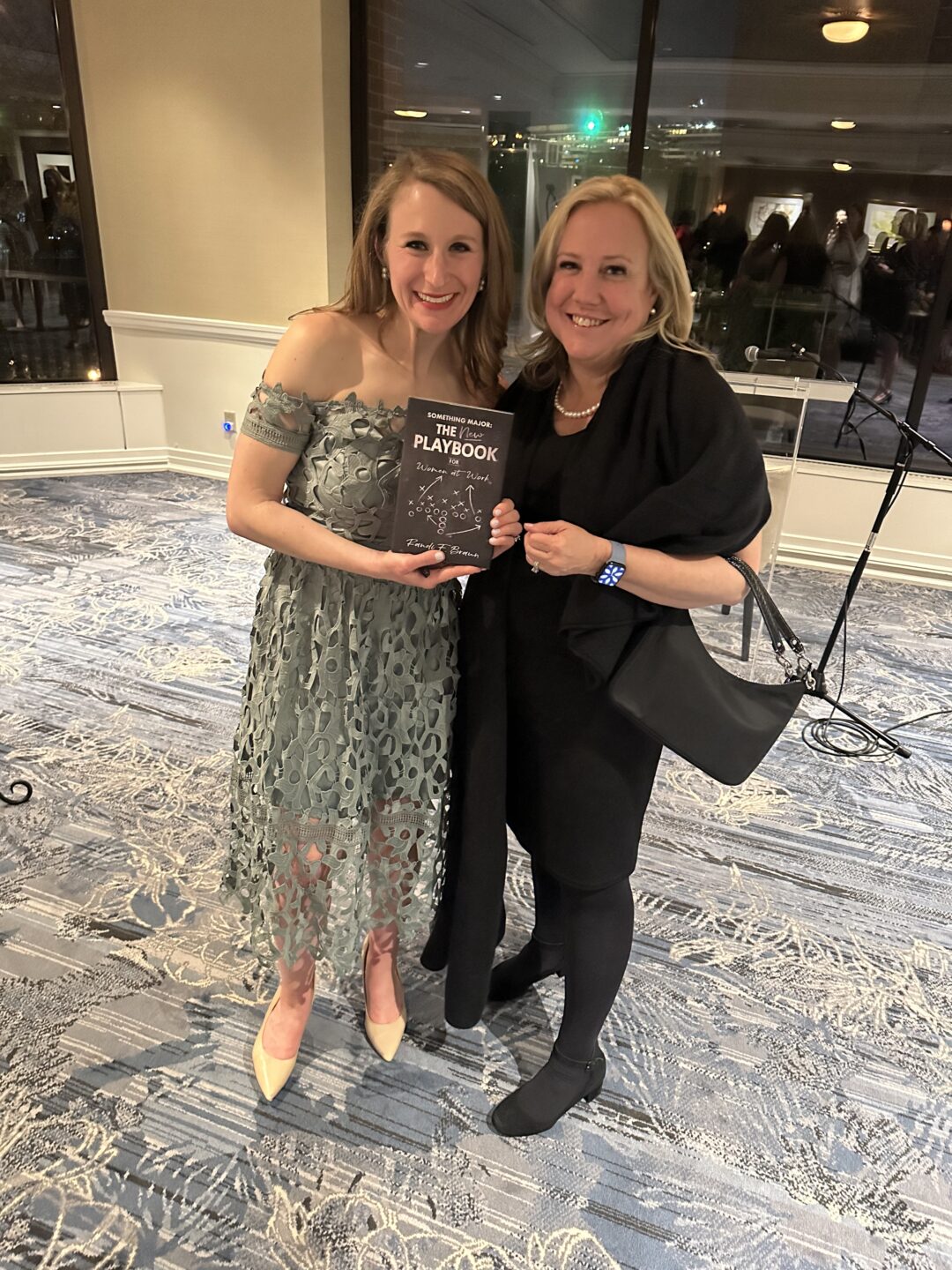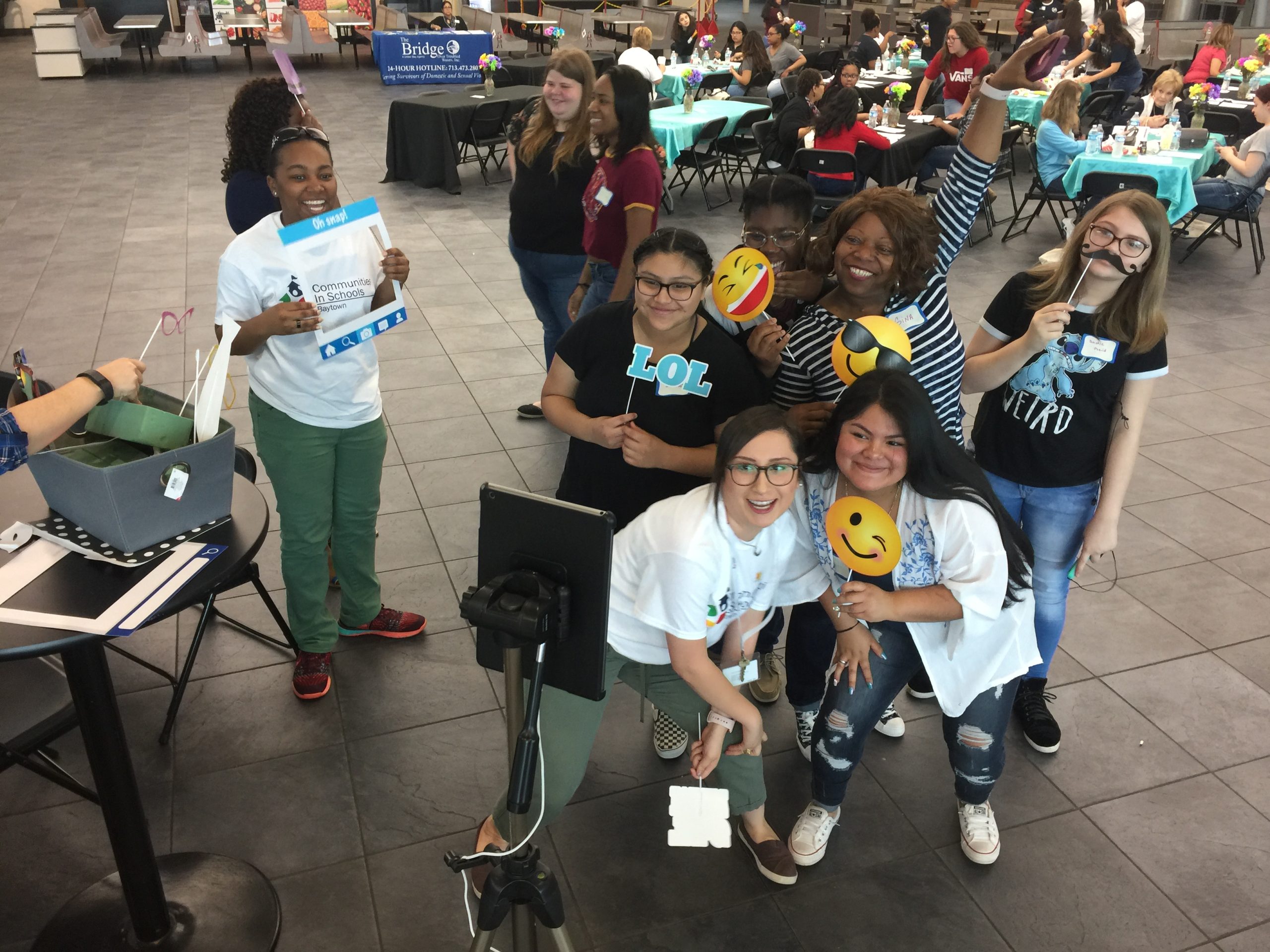I sat on the edge of my bed alone, trembling and paralyzed. It was July 2021. I couldn’t think, I couldn’t move. All I felt was dread and panic. I had to break the news to my teenage daughter that the delicate surgery she was scheduled for that day, which had been months in the planning, had been canceled because our insurance company denied coverage last minute as “medically unnecessary.” A stressful situation, to be sure, but my reaction was not at all a proportional response. I’m an attorney, a former litigator, and should have felt the gloves come off to prepare for battle. But I couldn’t. I was frozen. I didn’t recognize this person sitting on the edge of the bed. I’ve always been the problem solver, the fixer. Something was seriously wrong with me now. I couldn’t summon the strength to move or to deal at all with this or anything else for that matter. I thought I was losing my mind. And I was scared.
I know now that I was not losing my mind. But too many women are quietly suffering, as I did. I don’t use the term lightly or to be melodramatic. It’s real suffering. And to make matters worse, these women think that there’s no help, that they’re all alone. They’re wrong, as I was. I just wish someone had told me sooner.
I’m talking about menopause. Yup, I said it. Bring on the chuckles and the jeers. The butt of jokes for years, and stigmatizing for those who dare to complain out loud. The harsh realities of menopause for many women have for too long been neglected from our social and medical discourse. This, despite the fact that virtually every woman, regardless of race, wealth, or geography, will experience, to some degree, the life altering symptoms of menopause and its precursor, perimenopause.
I’ve decided to share my story to help even just one reader. If one woman sees herself in this story and seeks help, it will be worth putting myself into this awkward spotlight.
I’m 53 years old. I’m a professional, the wife of a doctor and a mother of two girls, now 18 and 21. In my late 40s, I started noticing changes in myself. Unexplained digestive issues. Unusual persistent fatigue. Poor quality sleep. Memory problems. Reduced concentration. But my periods were still regular, so I didn’t initially connect the dots. I was parenting two teenage girls, and trying to balance the demands of law firm life. For any lawyers reading this, you know what I mean – the stress of billable hours, demanding clients, working late nights and weekends. And for those of you with teenagers, and especially girls, no explanation is needed. So I dismissed my symptoms as stress-related and did nothing about it.
Eventually, I mentioned my symptoms to my gynecologist. A woman my age, she said I was in perimenopause, but that full menopause – defined as twelve consecutive months without a period – was likely still a couple of years away. She said if the symptoms became really disruptive to my life, we could talk about some treatments, including hormone replacement therapy, or HRT. I shut that right down. Hormones = high risk of cancer, heart disease and stroke, right? At least that’s what the news had been telling us for the last twenty years or so.
But as bad as these symptoms were, I was not prepared for what came next. I noticed that increasingly I was less able to cope with stressors in my life, even the minor ones. Irritability and mood swings are hallmarks of menopause, but this was way beyond that. I felt like I was in a constant state of panic. My heart was always racing. I felt a pit of dread in my stomach. I feared the worst outcomes of every problem. The daily anxiety became crippling. I didn’t want to get out of bed. But I didn’t seek help. I thought it was all due to situational stress – a perfect storm of my Type A self struggling against the isolation of COVID, ongoing work stresses, my daughter’s own health issues, family turbulence, and the fiascos of a new home construction.
That day in July 2021, when my daughter’s surgery was canceled, I hit rock bottom.
I confided to a friend about the severe anxiety, and apparent depression, I had been experiencing. To my surprise, she told me she had a similar bout with anxiety and depression the prior year and had gone on HRT, with great results. I had no idea. She told me about colleagues of hers who were also on HRT along with anti-anxiety/anti-depressant medications, and were getting their lives back.
I kept thinking to myself, how did I not know about any of this? I consider myself an educated person, but had no idea the true toll that menopause and perimenopause could take, especially on mental health. It had been a taboo subject, even among the closest of friends.
I made another appointment with my gynecologist. The moment she walked into the treatment room, I started bawling. I couldn’t get a single word out, but she knew. Once I regained my composure, we talked about all of my options. Turns out, unbeknownst to me, she subspecialized in menopause. A unicorn for sure, but I was so grateful. Like me, she believed in medication as a last resort. But I was worried and afraid. We decided to first start me on an anti-anxiety medication. Not necessarily forever, but for right then, I needed the help. The plan was to address my mental health first and we would discuss the physical symptoms at a later time.
I joined Facebook support groups for women with similar mental and physical symptoms from menopause and perimenopause, and quickly realized I was far from alone. I also read studies and was stunned to find that almost 50% of women suffer from anxiety and depression leading up to and during menopause, and women with low baseline anxiety before menopause are at significantly higher risk of anxiety in the transition to menopause. But most women do nothing about it. For too long, I, like so many, put on my fake smile and pretended to the world that I was okay.
After about six weeks on the anti-anxiety medication, I started feeling more like my old self again. Clarity returned. We tinkered with dosages and eventually found my sweet spot. My only regret was not starting it sooner.
But the physical symptoms of perimenopause remained, and were still a severe disruption to my life, both personally and professionally. Hot flashes had now crept in, particularly at night, brain fog seemed constant, constipation was now a chronic problem, and a good night’s sleep was not to be had. And let’s not forget the uninvited pooch appearing below my belly button, obliterating, seemingly overnight, years of efforts for a flat stomach despite no change in my diet. At my doctors’ suggestions, I tried probiotics, melatonin, and attempted “vigorous” exercise to relieve my symptoms (good luck with that when you’re exhausted all the time).
So I went back to my gynecologist to further discuss the possibility of HRT, and I did my own extensive research as well. What I learned shocked me.
In the 1990’s, nearly 15 million women were given a prescription for HRT, with exceptionally positive results. HRT is a form of estrogen, which is naturally depleted during the menopause transition. In the late 1990’s, however, a large-scale study began on the safety and effectiveness of HRT. In 2002, the bomb dropped. Headlines soared that the study had been paused due to a determination that HRT causes an increased risk in breast cancer, blood clots, heart attack and stroke. Practically overnight, women abandoned their treatments and doctors stopped prescribing HRT.
For the next twenty years, women went back to suffering in silence with perimenopause and menopause. They were advised by their doctors to just deal with it, it’s a rite of passage, nothing can be done. Menopause was barely being taught in medical school, and women in general were not being educated on what to expect from this inevitable phase of life.
It has only recently come to public light, however, that critical nuances of the HRT study were not publicized. The actual increased risks of cancer, heart disease, stroke and blood clots from HRT were, in fact, nominal. For example, while alarming headlines read that the risk of breast cancer increased by 26 percent, the actual likelihood only increased from 2.33% to 2.94%. Not to be ignored, but certainly not an increase warranting the wholesale abandonment of HRT. But women weren’t even given the chance to balance for themselves the risks of HRT versus a reduced quality of life by doing nothing. The studies also showed that the increased risks were found in women over age 60 and those who had taken HRT for more than five years. But for most women in their 40s and 50s, without family histories of those conditions, HRT could be a safe and effective option.
I discussed with my doctor all of the pros and cons given my personal health history and decided to start on HRT. The hot flashes dissipated. My energy and sleep improved. The weight gain is still a stubborn reminder, but I try to remember my doctor’s words: “Be kind to yourself.”
I am not writing this article to suggest everyone should start taking hormones or medications for menopause symptoms. They are absolutely not right for everyone. And I also do not intend to stay on any of these treatments long term. But I can’t stress enough to find a doctor who will listen to you, not dismiss you, about the changes to your mental and physical health, and who will discuss the options that are right for you. I urge you to find a Certified Menopause Practitioner on the website of the North American Menopause Society at www.menopause.org.
And please, talk to your friends, talk to your family, join online support groups, do your research, whatever you need to do to convince yourself that you are not losing your mind, and that you are not alone.





